Peaceful or armed reunification: Are top Chinese advisers divided over Taiwan?
Given rising cross-strait tensions, there have been increasing calls in mainland China for reunification by force with Taiwan. However, recent statements by key Chinese advisers on Taiwan issue seem to suggest otherwise, and Chinese academics have since been engaged in a debate. While both sides appear to be in opposition, Zaobao correspondent Yu Zeyuan thinks it is necessary to look beneath the surface.
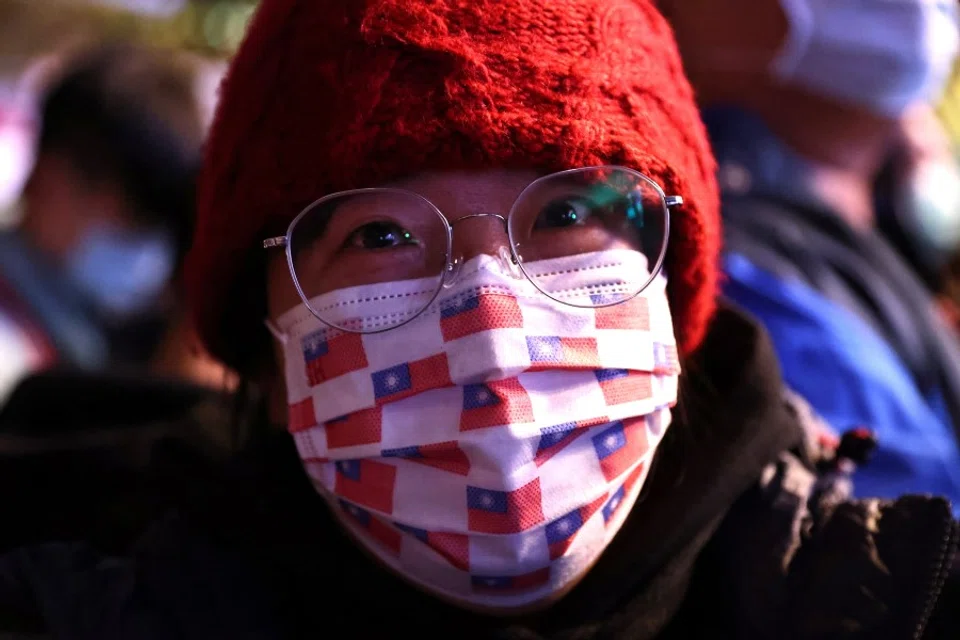
With continued tensions in the Taiwan Strait, there has been recent debate among academics in mainland China over whether China's policy towards Taiwan will continue to be one of "peaceful reunification" or shift towards "reunification by force".
On 29 December 2020, at an annual forum on the Taiwan political situation and cross-Strait relations in Beijing, National Society of Taiwan Studies (NSTS) president Wang Yifu said: "No matter how the political situation changes, we [the mainland] still hold the initiative in cross-Strait relations. Mainland China's general policy towards Taiwan is clear and consistent. We hold firmly to the one-China principle and the 1992 Consensus, to peaceful reunification and One Country, Two Systems, to opposing and containing separatist schemes and actions towards Taiwan independence, and to safeguarding national sovereignty and territorial integrity. We will not tolerate comments that disparage the central government's policy towards Taiwan and which deny the results of our efforts in Taiwan."
The NSTS is mainland China's official think tank on Taiwan issues, and 70-year-old Wang who took over as president on 7 December 2020, succeeding former State Council member Dai Bingguo, is one of China's key advisors on the mainland's policy towards Taiwan. From 1998 to 2008, Wang was deputy governor of Fujian under then governor Xi Jinping - his comments are an indicator of mainland China's policy towards Taiwan.
Wang and Liu's reiteration of peaceful reunification and One Country, Two Systems - especially Wang's emphatic comment that "we will not tolerate comments that disparage the central government's policy towards Taiwan" - is seen by Taiwan as an effort by mainland authorities to lower the heat on talk of a reunification by force.
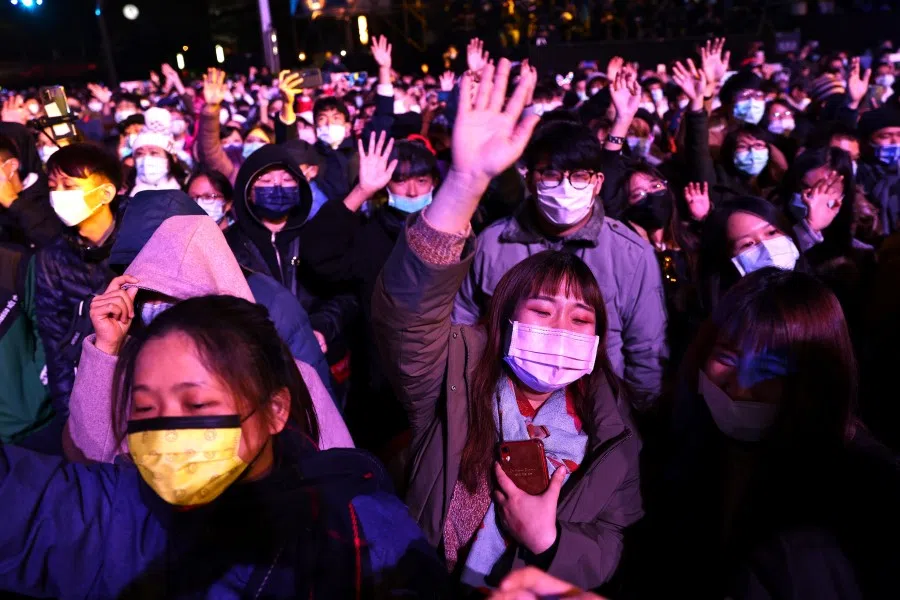
At the same time, in a New Year's message carried in the first issue of the Relations Across the Taiwan Strait (《两岸关系》) magazine in 2021, Liu Jieyi, head of the Taiwan Affairs Office (TAO) of the State Council, wrote: "We hope our compatriots in Taiwan can see the historical direction and the general trend of the times, stand up against separatist 'Taiwan independence' and not be 'pawns' manipulated by external forces, work with us to maintain the stability of the Taiwan Strait, and seek, protect, and enjoy peace together... promote the peaceful and integrated development of cross-strait relations, and push for reunification of the motherland. We firmly believe that as long as compatriots on both sides of the Taiwan Strait are of one mind and act as one, there will be greater room for peaceful development of cross-Strait relations."
Tough talk to fend off hawks
With recent calls for reunification by force among mainland China's online community, Wang and Liu's reiteration of peaceful reunification and One Country, Two Systems - especially Wang's emphatic comment that "we will not tolerate comments that disparage the central government's policy towards Taiwan" - is seen by Taiwan as an effort by mainland authorities to lower the heat on talk of a reunification by force.
Taiwan's Central News Agency analysed that as cross-strait relations have hit a low in recent years, with "encouragement" from hawkish media and writers, talk of reunification by force has surfaced among the online community in mainland China. For example, former TAO deputy head Wang Zaixi previously said chances of peaceful reunification are getting smaller, while former People's Liberation Army (PLA) Nanjing deputy commander Lieutenant General Wang Hongguang advocated reunification by force.
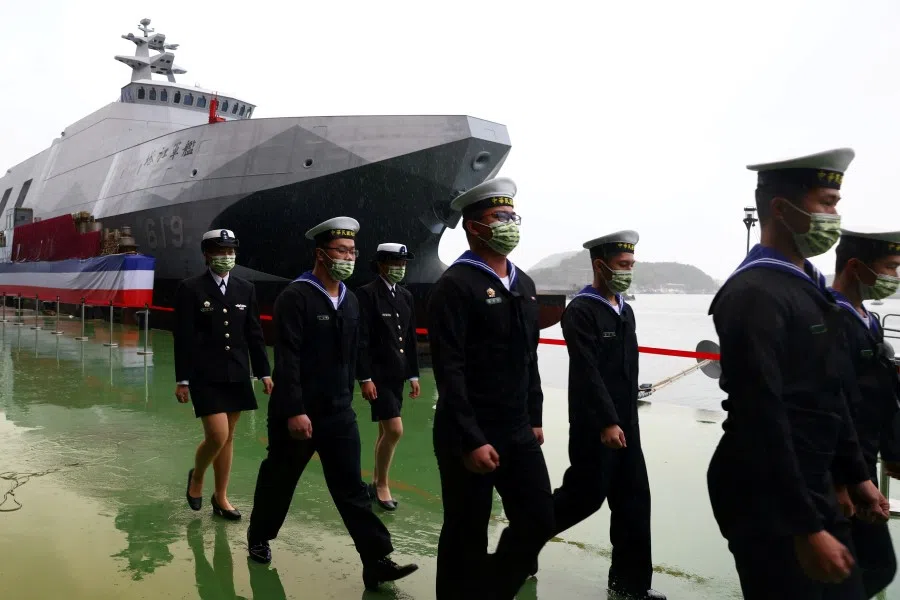
So, Wang's comments are calculated to align mainland China's policies and attitude towards Taiwan, to prevent hawkish comments disparaging the central government's policies from interfering with the latter's efforts on Taiwan, and becoming fodder for attacks by the opposition.
Some mainland China academics feel that Wang's comments mean that China might impose strict regulations on discussions on Taiwan. Chinese Academy of Social Sciences researcher Zhang Ning wrote on microblogging platform Weitoutiao that Wang's line about not tolerating comments that disparage the central government's policy towards Taiwan and which deny the results of efforts in Taiwan suggest that comments on Taiwan might be tightened and more strictly controlled - no Chinese individual would want to be labelled as "disparaging the central government".
Tighter restrictions on discussions on Taiwan?
However, mainland China academics have also questioned Wang's criticism of disparaging the central government. Professor Yan Xuetong, dean of the Institute of International Relations at Tsinghua University, raised two questions on Weitoutiao: What is the difference between "disparaging" and "discussing" as meant by Wang? Would the NSTS session be considered discussion or disparagement?
Some netizens responded bluntly under Yan's post that Wang considers Taiwan-related efforts his prerogative, but the question is, who gave him authority over Taiwan? What results has mainland China achieved in Taiwan? Some netizens joked that the only thing China has achieved is to nurture a whole group of people who want "Taiwan independence".
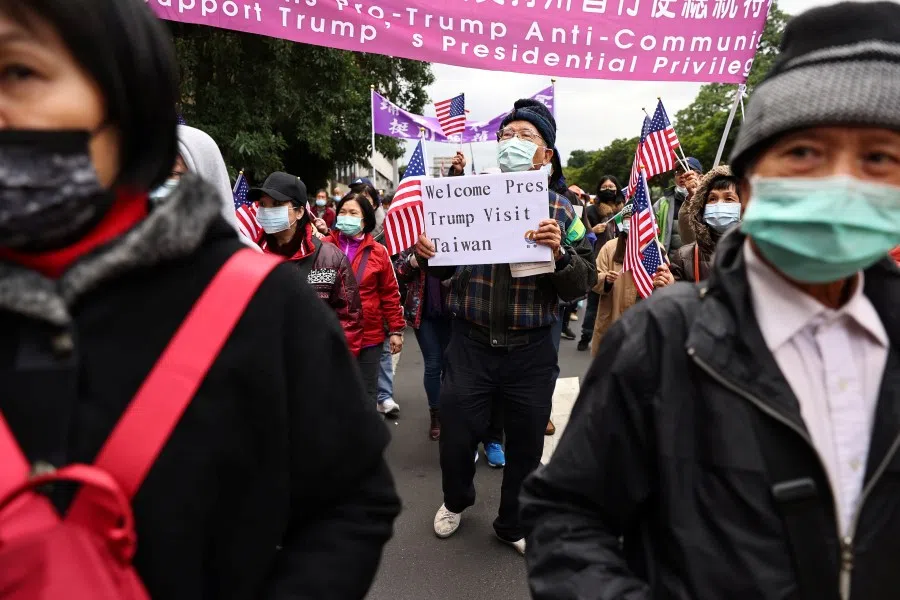
On the surface, these debates involve whether mainland China wants peaceful reunification or a reunification by force with Taiwan, and both sides seem to be clearly in opposition. However, fundamentally, reunification is the general direction of China's policy towards Taiwan, whether it was the previous "liberation of Taiwan" or today's "peaceful reunification", China's stand has never wavered; it is a matter of different methods to reunification, whether peaceful or by force.
Since this year, China has clearly increased its military pressure on Taiwan, not just in retaliation for the US's recent frequent playing of the "Taiwan card", but also to prevent black swan incidents relating to Taiwan independence.
Reunification the ultimate aim
From the perspective of mainland China leaders, peaceful reunification is of course the top choice, and it has been China's direction over the past 40 years. Although Taiwan's pro-independence Democratic Progressive Party (DPP) may be in power for a long time, mainland China has not and will not easily give up its hope and efforts in peaceful reunification, for the simple reason that peaceful reunification is in line with immediate and long-term interests of both sides. There is no doubt that Wang and Liu's comments on peaceful reunification represent the stand of China's leaders.
On the other hand, reunification by force is also a reality that mainland China needs to face. Since this year, China has clearly increased its military pressure on Taiwan, not just in retaliation for the US's recent frequent playing of the "Taiwan card", but also to prevent black swan incidents relating to Taiwan independence. To deter the outgoing Trump administration from taking risks on the Taiwan issue, China's preparations for reunification by force are not just for show.
And so, the Chinese authorities will not abandon reunification by force even as it emphasises peaceful reunification; neither will it allow reunification by force to become the mainstream narrative in its efforts towards Taiwan. After all, reunification is not listed among China's targets over the next five years, and its top priority remains to push its own modernisation. All mainland China needs to do is maintain its current growth, and its ability to control cross-strait relations will also strengthen.

![[Big read] Paying for pleasure: Chinese women indulge in handsome male hosts](https://cassette.sphdigital.com.sg/image/thinkchina/c2cf352c4d2ed7e9531e3525a2bd965a52dc4e85ccc026bc16515baab02389ab)
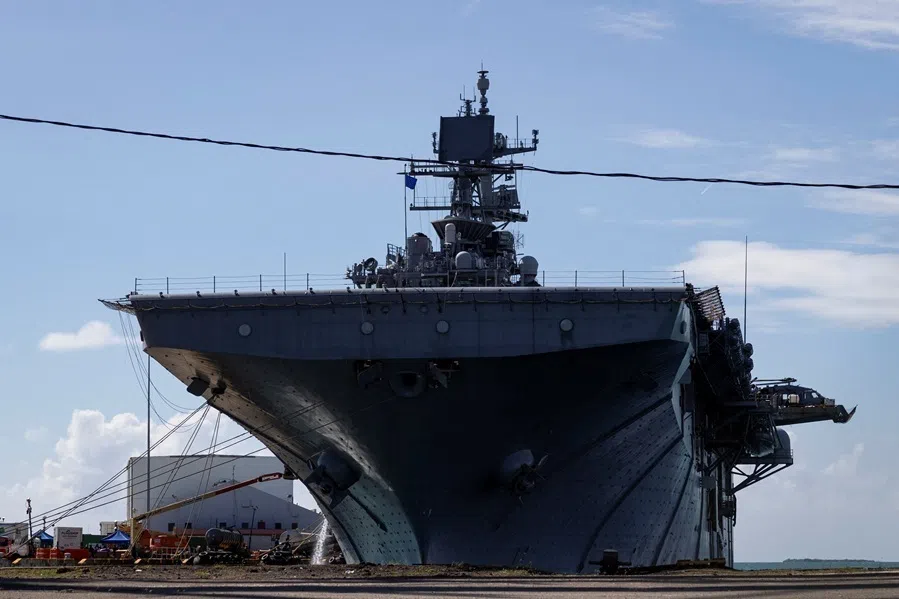

![[Big read] How UOB’s Wee Ee Cheong masters the long game](https://cassette.sphdigital.com.sg/image/thinkchina/1da0b19a41e4358790304b9f3e83f9596de84096a490ca05b36f58134ae9e8f1)
